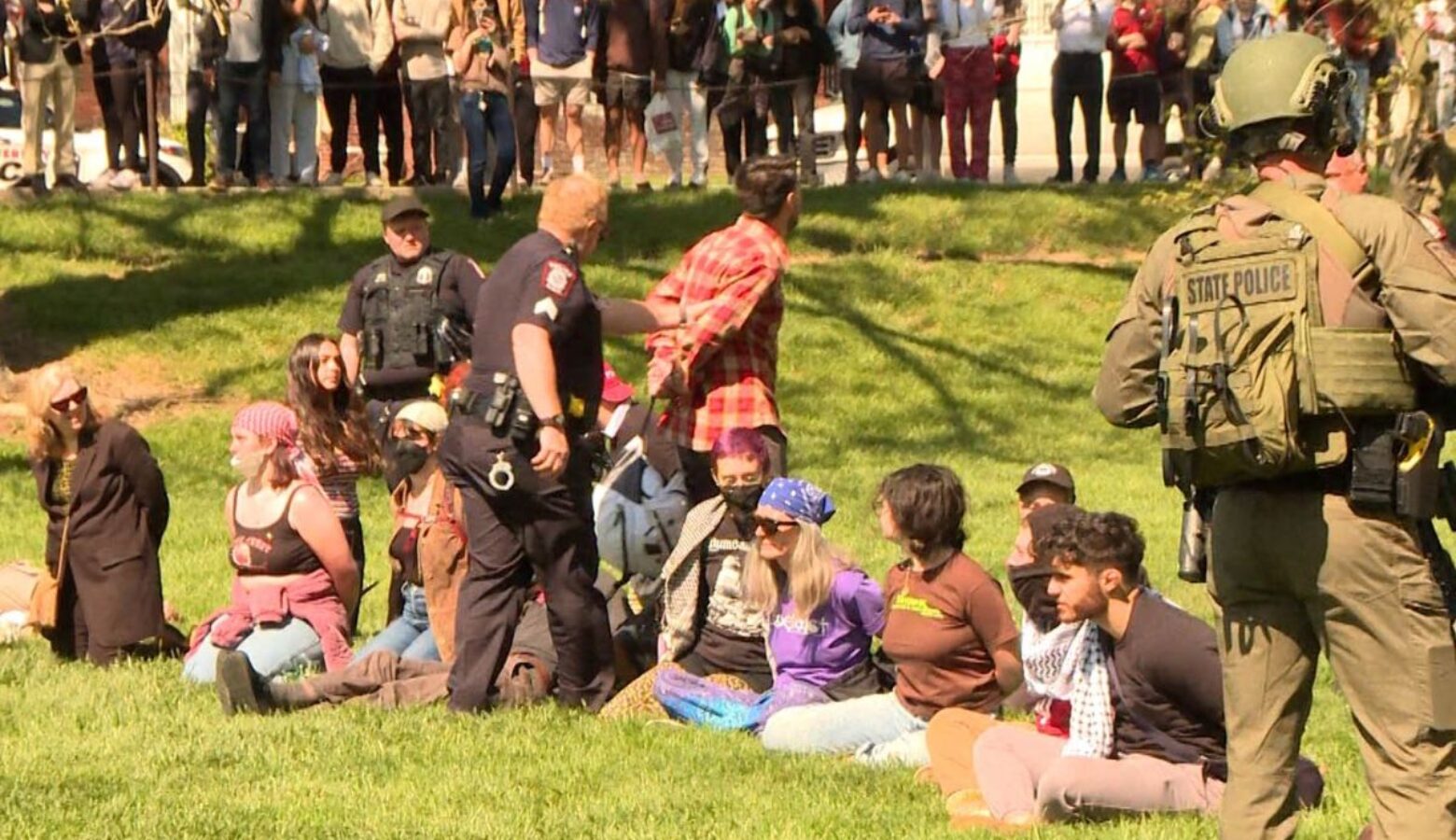‘Independent’ review of Indiana University pro-Palestine protests and arrests released

After police arrested 57 protesters, a new independent review of the Indiana University response to an April pro-Palestinian encampment and protest in Bloomington found the university’s inconsistent enforcement of its own polices created “confusion and frustration” and made governing the campus difficult.
The 77-page report points to a last-minute change to a policy governing assembly at Dunn Meadow, where the encampment took place. The report says the policy change was permitted both legally and under university policy, but created confusion. It says IU balanced free speech with campus safety and sending in state police was “the safest option available to remove the encampment.”
And despite complaints from students and faculty, Indiana University president Pamela Whitten continues to defend her decisions surrounding the April protests.
“This commitment to safety was our north star for all of our decisions in that season, and I stand behind the decisions that we made at that time.”
Whitten adds that she doesn’t want to see that situation unfold again.
“I heard from so many students and parents throughout the year with concerns about safety for their students, and then, after the events in Dunn Meadow occurred, I heard from so many that really express gratitude for our taking actions to keep their their students safe,” she said.
Cooly LLP says the report was “wholly independent.” Cooley partner Rebekah Donaleski led the investigation.
“We have a lot of experience coming in and doing independent investigations,” she said. “What that really means is that we follow the facts where they lead us, we figure out what happened, and we do that by reviewing documents by talking to people.”
The report gives eight recommendations for IU to implement. University officials will meet next week to consider the report.
Methodology
Authors of the report interviewed “more than two dozen people, including some more than once, for a total of 30 interviews.” They included 11 specified administrators, officers from the IUPD and ISP leadership, the Monroe County prosecutor, and students and faculty. Donaleski said they received permission from IU to keep student comments anonymous.
“We were very grateful that so many students, the vast majority of the students we reached out to, did agree to meet with us.”
Donaleski added that they looked for individuals with different perspectives to make sure a variety of voices were heard, but that two student leaders of the encampment declined to meet with them.
The report also said Cooley reviewed internal documents and emails, IUPD case reports and IUPD video surveillance, but not state police body camera footage. Donaleski said reviewing the actions of state police was outside of her mandate.


